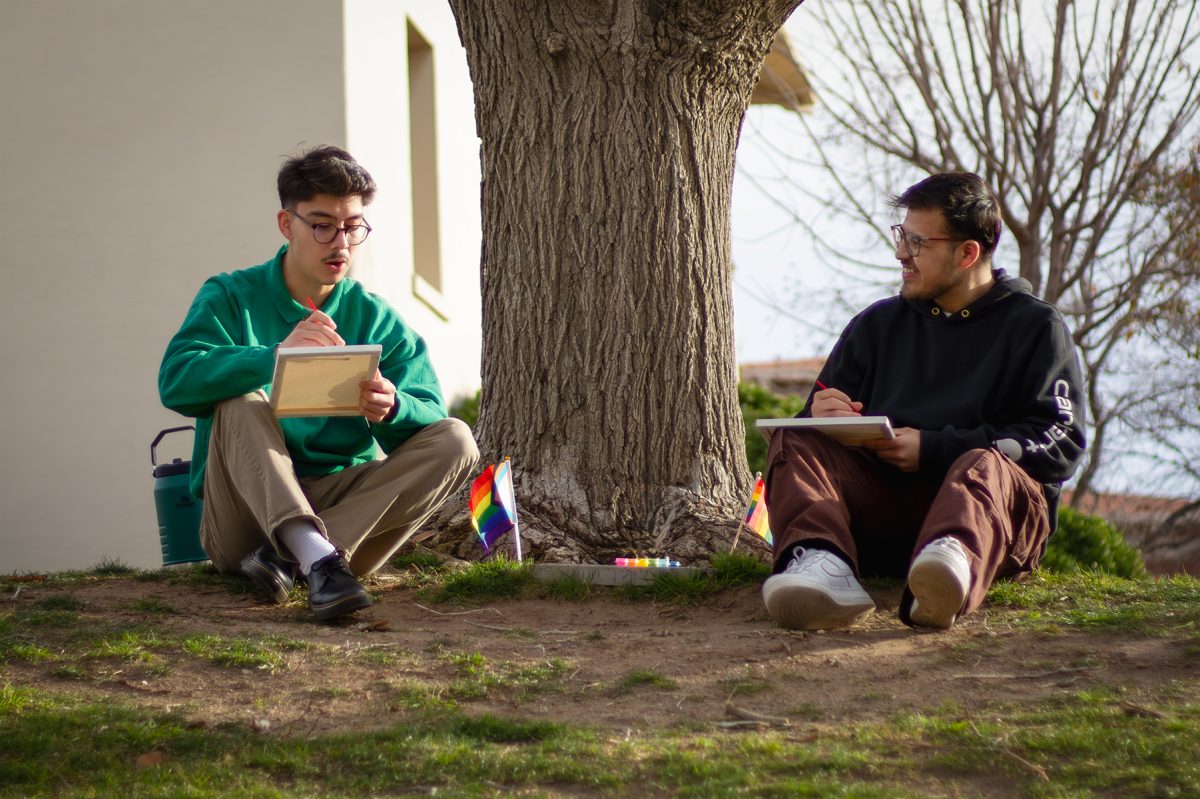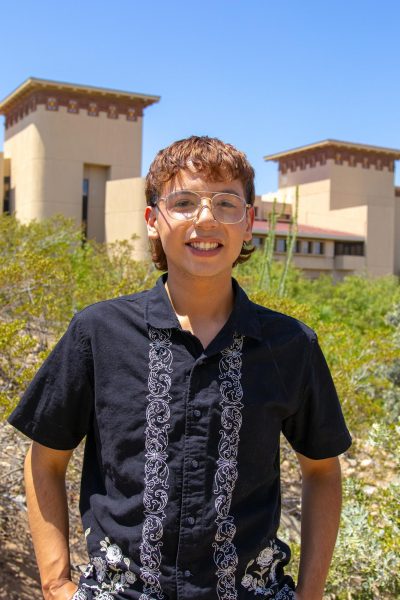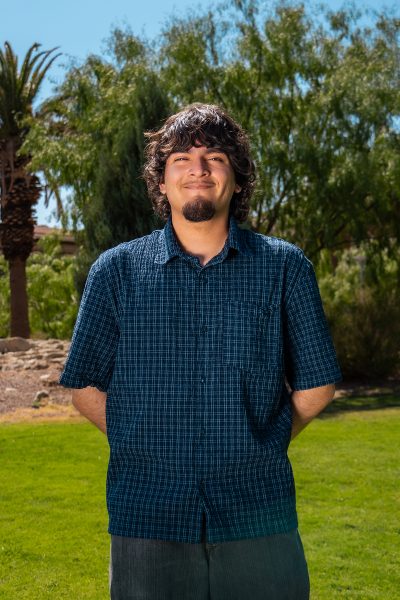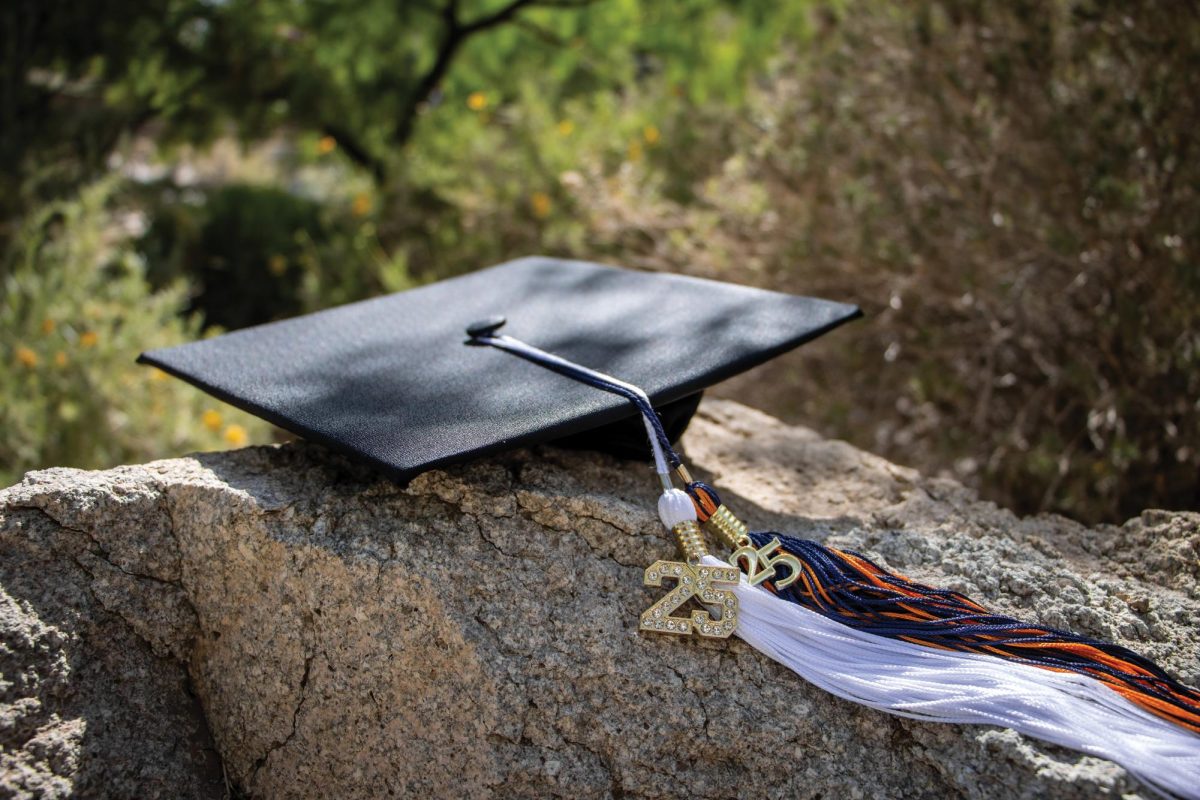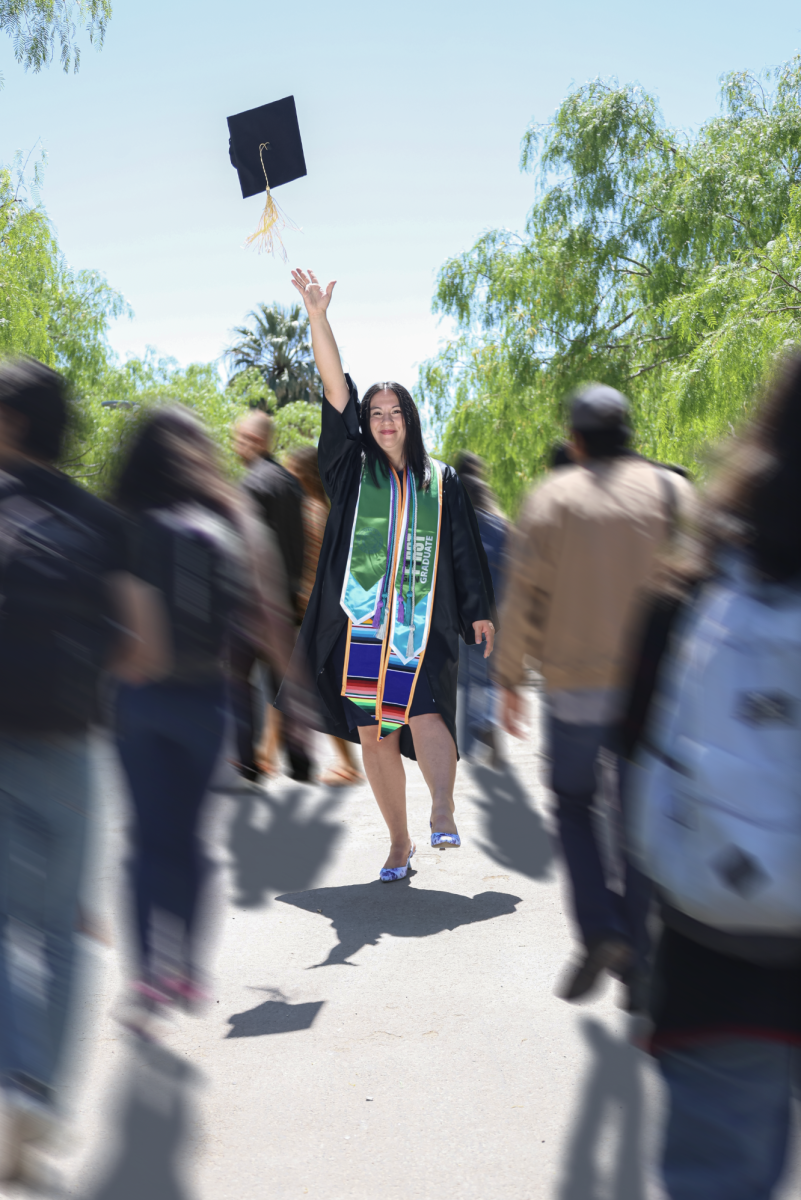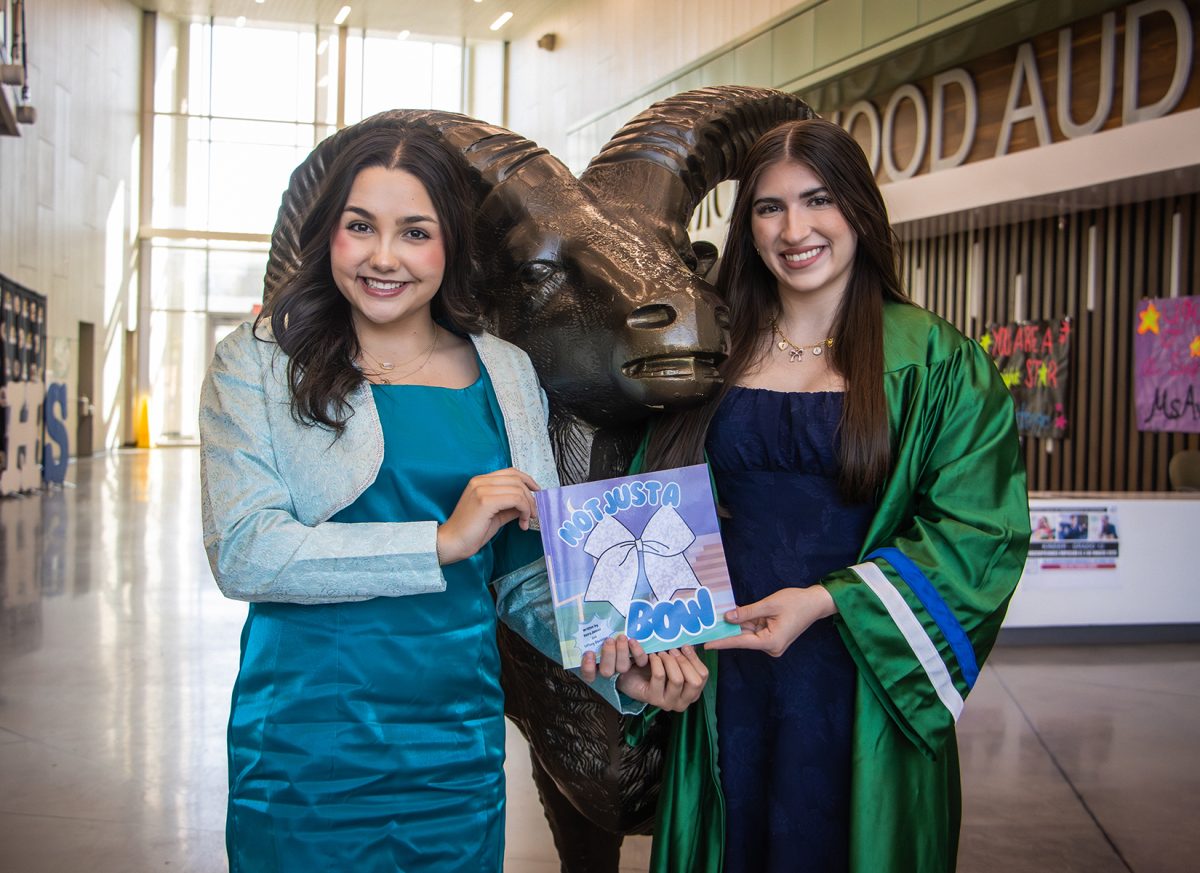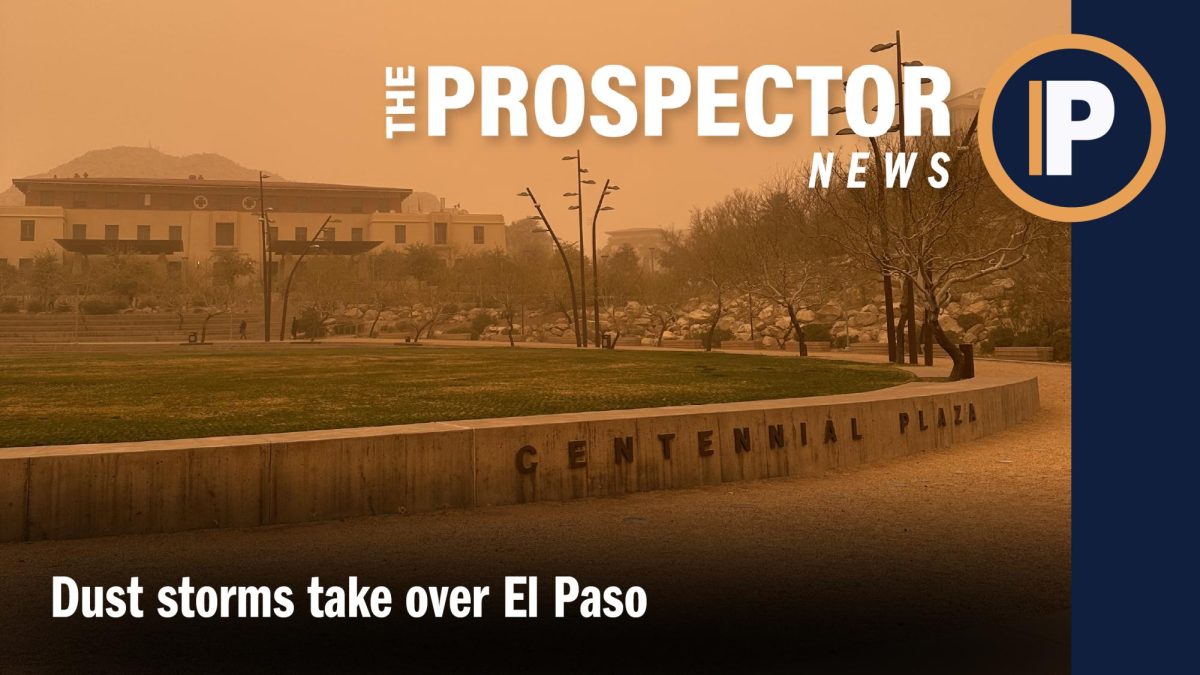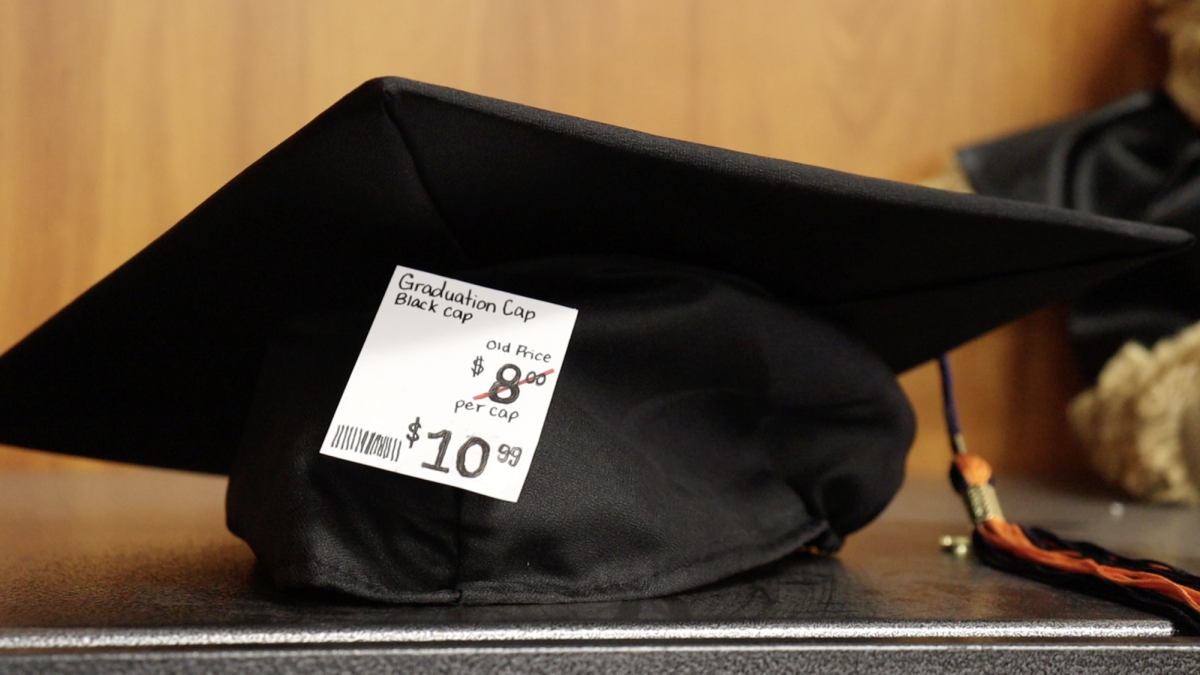It’s human nature to look for love. Finding romance can be a particularly difficult endeavor, especially during the month when love songs are playing on the radio and every store is filled to the brim with Valentine’s Day decorations, candy, cards and giant stuffed animals that no one looks comfortable carrying. For the LGBTQ+ community, love sometimes seems impossible, especially while worrying about meeting up with the wrong date, being misled or possibly being the victim of a hate crime.
According to The National Cybersecurity Alliance, internet dating is now crucial for connecting LGBTQ+ people and other communities, so it’s imperative to find measures to say safe.
Jesus Estrada, 28, a drag performer that goes by the name, Mariii P. says that looking for a relationship is difficult in El Paso because the “hookup culture” has taken over the community with sexual engagement being what most people in the community look for.
“I think it’s become the new norm just to hook up and go, you know? And in a way it’s kind of, I guess, nasty because there’s a few people that are like ‘oh I’ve been with him too.’ People have been with the same people,” Estrada said. “El Paso is not that big so everybody knows everybody so you got to be really cautious.”
Estrada says he has been through bad experiences, which has led to finding himself navigating through love via dating apps.
“After I got cheated on so many times I was just like you know what screw this and then that’s when I got that app,” Estrada said. “That’s where I started hooking up with people just to, I don’t know why; to feel something I guess.”
Estrada says the hookup culture being present through all sexualities can have an affect on ones mental health and physical health. He emphasizes that self-image and self worth are the two life qualities he finds important in someone before looking for a relationship, especially in a community that has hook-up culture.
Other identities of the LGBTQ+ community include non-binary and other sexualities, which Jessica Reyes, 22, identifies as. Reyes presents other issues including the understanding of gender and sexuality.
“The concept of dating wasn’t even something I was thinking about because I was just like, nobody wants to date me,” Reyes said. “You know, nobody would be even more interested in dating me if they knew that I was a non-binary person.”
Reyes says that when telling people they were non-binary, it seemed as if a switch flipped in their mind leaving Reyes feeling fetishized because of their gender and sexuality by men they have dated.
“I think maybe it’s just, not something that I’m ashamed of, obviously not, you know, but it’s very much something that I choose to disclose with only a specific group of people, you know, and when, and if it’s somebody that I’m interested in, well, then I’ll tell them,” Reyes said. “If it doesn’t apply, well, then it is what it is, and then you move on, you know?”
Reyes also points out that because of the lack of education about the LGBT+ community, they have seen people turn to the wrong places and people for education attempting to find some connection to their own sexuality and communities. They specifically speak on the risk of queer youth even endangering their lives.
“My heart goes out to them and gay youth in general, but specifically young gay youth and trans youth, because they have three outlets. I’m sorry, but statistically, their outlets are either mass exposure to the point where they’re at the age of 15, 16, 17, trying to gain some sort of knowledge about what to do with the feelings that they have,” Reyes said.
Reyes says the societal pressures of explaining one’s queer relationship to people can be difficult and confusing, like “who is the boy?” and “who is the girl?”
In the queer community, the discussion of a relationship can be impossible to have without the topic of sexual health. HIV education outreach specialist, Sergio Flores, believes it should be a conversation one should have freely.
“Even just getting tested, I can tell, feels a little bit of stigma. My desk is at the front, so I often hear when people come in, I’m like, there’s no need to whisper. We have a welcoming environment,” Flores said.
Flores says even though people feel a embarrassed, discretion and multiple resources for protection, HIV prevention and medication for STDs, free samples of condoms are available for safe-sex practices.
An experience Flores says he has had to encounter on multiple occasions has been telling multiple people that they have contracted HIV. He says it’s an experience that never gets easier. He points out that it is hard to reach younger demographics especially due to policies on sex education in Texas.
Flores also has his share of experiences while dating, advising youth to follow the words of Bob the Drag Queen and to never date someone who is on the “down low” because it will never go anywhere.
“I believe the LGBTQ+ experience in El Paso is, if you’ve never dated somebody in the military, that’s a rite of passage here in El Paso, because my first boyfriend was [military] it was the time before Don’t Ask, Don’t Tell was repealed. So, I mean, obviously, we have to keep it on the down low,” Flores said.
The Don’t Ask Don’t Tell policy was adopted as an official federal policy in 1996. It prevented anyone in the military to be openly queer without risk of being discharged. It was believed that queer presence in the military would not allow soldiers to carry out their respective duties. The policy was repealed in 2011.
“After the Supreme Court shut that down, I personally expected things to change, and that was not really the case,” Flores said. “We still had to tiptoe around it. I would not encourage anybody to be in that situation. It’s really hurtful, especially, if you want to be more open with your relationship.”
Flores says though the dating pool in El Paso may seem smaller compared to cities like Houston and San Antonio, there are still spaces in the city to encounter events held at the M Factor and the Borderland Rainbow Center.
Although we live in a world that is still learning about the LGBTQ+ community, it can still be difficult for those in queer relationships to live their lives.
Reyes reminds everyone that like any other relationship, a queer one is just as special.
If anyone needs to be tested, resources are available at the Department of Public Health. If someone is looking for love, there are resources for that as well. With Valentine’s Day a few days away spread love to your partner, family and yourself.
Adam Regalado is the multimedia editor at The Prospector and may be reached at [email protected]

